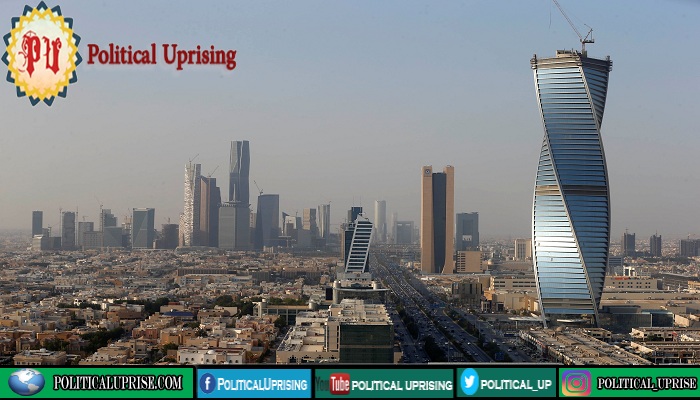Those Foreign companies that want to participate in investment opportunities need to move their headquarters to the kingdom by 2024.
Saudi Arabia’s finance minister says Riyadh and Dubai “will have healthy competition” after announcing that foreign companies that want to participate in Saudi government investment opportunities need to move their headquarters to the kingdom by 2024.
Mohammed al-Jadaan said that the two cities “will continue to complement each other” while stressing that “Dubai has its own competitive advantage”.
However, the finance minister added that international companies “will have to make a choice” and establish their regional headquarters in the kingdom or be excluded from government contracts.
KSA to remove main restrictions on foreign workers
Dubbed “Project HQ”, the move is aimed at pushing foreign firms to open a permanent, in-country presence that would help create local jobs.
Foreign businesses have for years used the neighbouring United Arab Emirates (UAE), and particularly the emirate of Dubai, as a springboard for their regional operations, including for Saudi Arabia.
There was no immediate response from the UAE to the decision by Saudi Arabia.
Saudi agencies, institutions and funds owned by the government will all potentially cease awarding contracts to foreign companies, effective January 1, 2024, Saudi government news agency announced.
The foreign companies will, however, remain free to work with the private sector, al-Jadaan added.
“If a company refused to move their headquarters to Saudi Arabia it is absolutely their right and they will continue to have the freedom to work with the private sector in Saudi Arabia,” al-Jadaan said.
KSA allows foreign pilgrims to enter for Umrah
“But as long as it is related to the government contracts, they will have to have their regional headquarters here.”
He added that some sectors will be exempt from the decision, and detailed regulations will be issued before the end of 2021.
“Saudi Arabia has the largest economy and population in the region, while our share of regional headquarters is negligible, less than 5 percent currently. You can imagine what does this decision mean in terms of FDI (foreign direct investment), knowledge transfer and job creation,” al-Jadaan said.
Saudi Arabia’s de facto ruler, Crown Prince Mohammed bin Salman, has pledged to open up the kingdom and strengthen its economy under an ambitious reform strategy that aims to diversify the oil-dependent economy, attract foreign investment and create jobs for millions of young Saudis.
The “Project HQ” directive was made in accordance with the announcement of the strategic goals of the kingdom’s capital, Riyadh 2030, during the Future Investment Initiative forum that was held in January.
At the conference, 24 international companies, including Deloitte, PwC, Bechtel and PepsiCo, announced their intent to move their regional headquarters to Riyadh, Bloomberg reported.
Al-Jadaan said the current business environment in Saudi Arabia has room for improvement and that the government will complete judicial and regulatory reforms and improve the quality of life so that companies and people feel comfortable moving there.
Saudi Arabia is expected to see GDP growth of 2.8 percent this year, according to a quarterly Reuters survey of analysts released in January, down from 3.1 percent expected three months ago.
KSA abolishes flogging as punishment
The median forecast for its GDP contraction in 2020 improved to 4.4 percent from 5.1 percent. The economy is expected to grow 3.2 percent next year and 3.1 percent in 2023.
“The recovery in Saudi Arabia’s economy will continue over the course of this year. But with oil output being ramped up only gradually and fiscal policy to remain tight, the recovery is likely to be slower than in the other Gulf states,” Capital Economics said in a research note.
The economy of the UAE, which in January has seen its seven-day average COVID-19 daily cases nearly triple, is expected to grow 2.2 percent this year cut from 2.7 percent growth expected four months ago.



